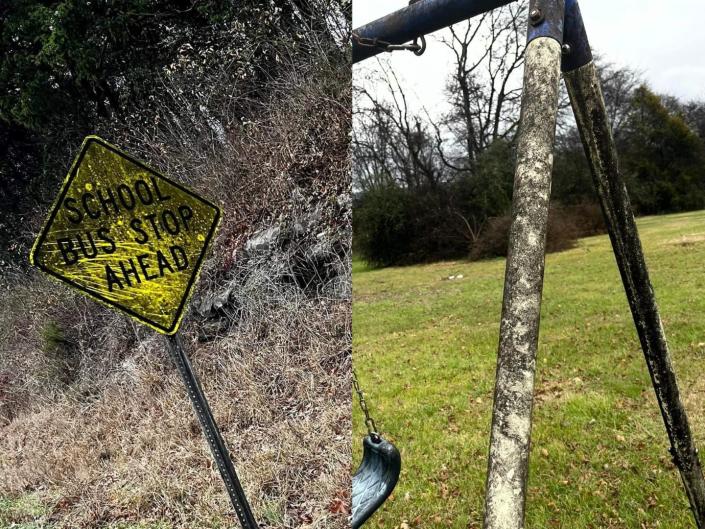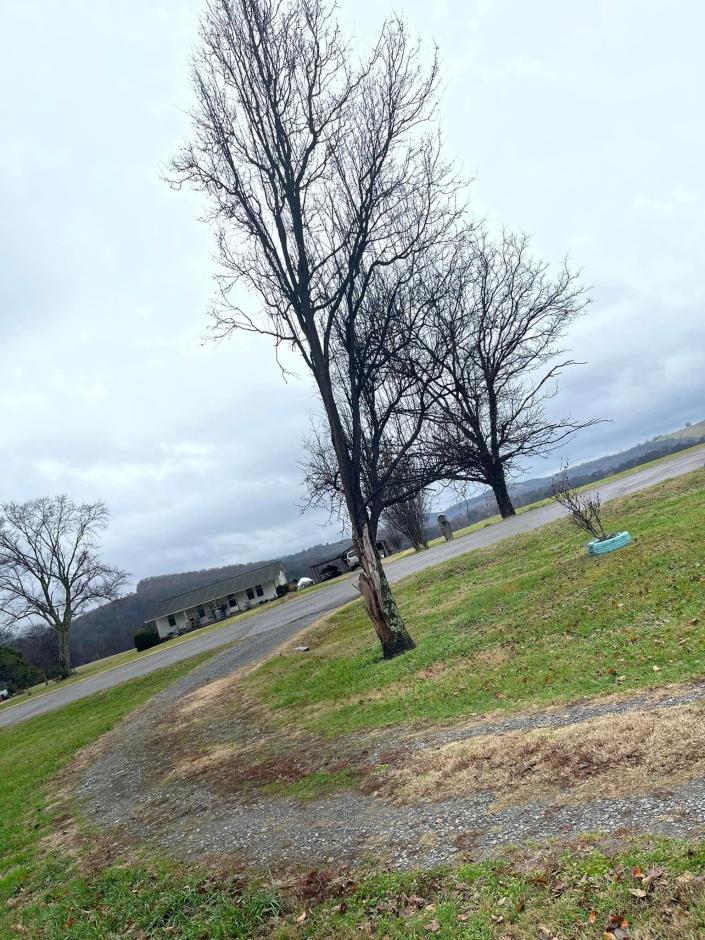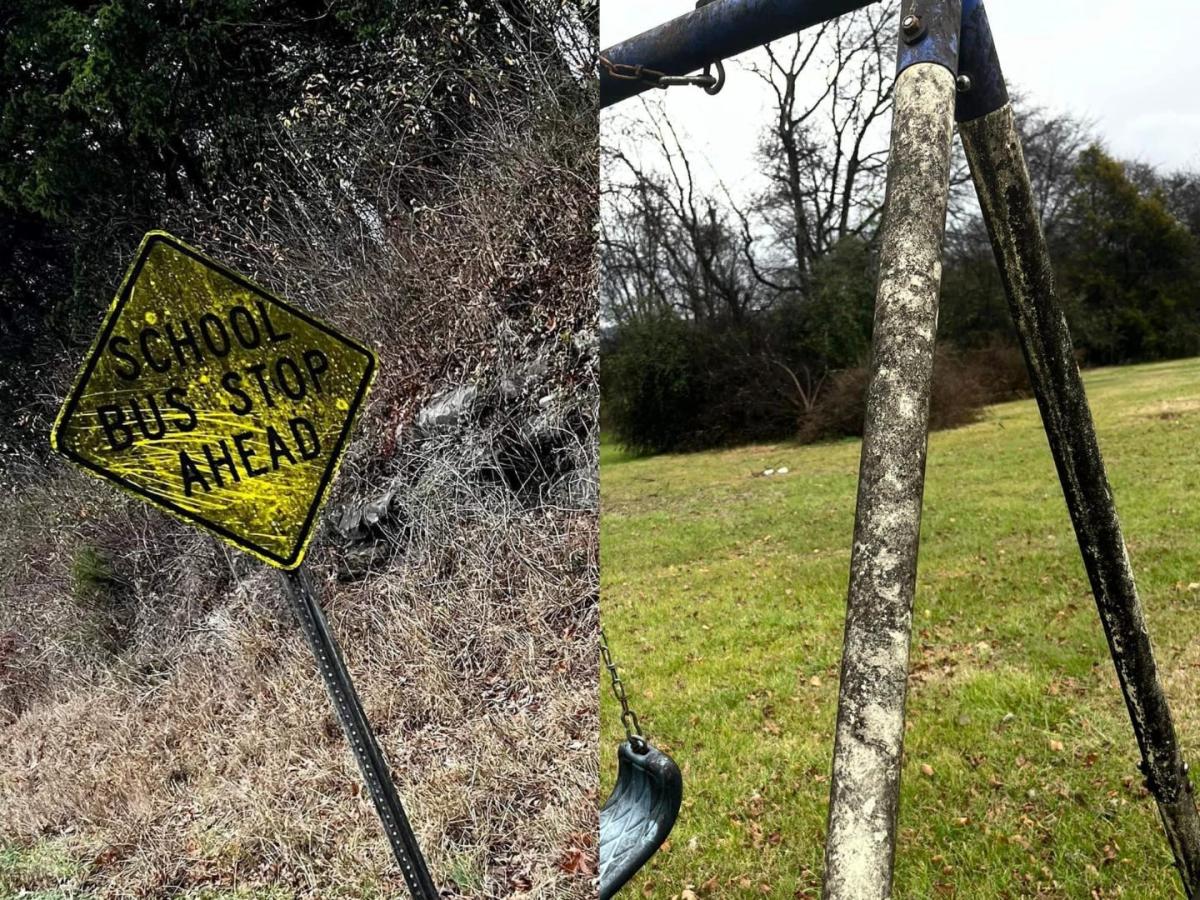
-
Lincoln County residents have had enough of the black mold covering their homes and cars.
-
The stubborn “whiskey fungus” feeds on ethanol vapor from Jack Daniels barrel houses.
-
The local population is demanding an air filtration system and an environmental impact assessment.
The sooty mold suffocates homes, porches and cars, locals say. It obscures street signs and covers the leaves and bark of trees. It clings to any stationary object and makes residents question the safety of the air they breathe.
An out-of-control black “whisky mold” known as Baudoinia compniacensis, fueled by ethanol vapor from the Jack Daniels facilities, has been threatening locals in Lincoln County, Tennessee, ever since the famed liquor company began building six new barrel houses in 2018 and launched plans to build 14 more, locals say. Now irate residents are demanding that the company and the county respond to the damage and falling property values, proving that the ethanol-filled air is safe to breathe.
Patrick Long, who lives next door to the Jack Daniels barrel houses and whose wife, Christi, has filed a lawsuit against Lincoln County, told Insider that the community has two main demands: an air filtration system that could block ethanol emissions and curb the growth of the mold, and an environmental impact study evaluating the amount of ethanol coming out of the barrel houses and any health risks it poses.
“I’m very concerned. My wife has breathing problems. One of the neighbors has cancer,” Long said. “It’s in the air. And you probably don’t want to breathe that in. But no one has done a test to determine if it’s really toxic.”
Long said the six existing barrel houses mean he has to spend about $10,000 a year washing his house with a powerful mixture of water and Clorox. He also said local officials have given up on cleaning the mold-covered street signs and simply replacing them when they become too black to be read.
“If you carry decent nails and you drive them past a tree or property within a quarter mile to a half mile of these barrel houses, your whole finger will be covered in black fungus,” Long said. . “You can no longer see the tree branches. Our house, we now have to have it cleaned four times a year.”
He said he alerted federal Environmental Protection Agency officials, who declined Insider’s request for comment on “potential or ongoing enforcement activity or investigations.”
Christi Long’s recent lawsuit against the Lincoln County Board of Planning and Zoning demands that the county issue a cease and desist order at Jack Daniels, alleging the company built the facilities illegally and lacked proper approval of the building plan and building permits.
Lincoln County did not immediately respond to Insider’s requests for comment. But at a public hearing late last year, reported by the Moore County News, Jack Daniels official Melvin Keebler expressed sympathy for a resident complaining of her stage 4 lung cancer and requesting an air filtration system. Keebler said the company already monitors air quality and said the existing air filtration technology is for wineries, not whiskey and bourbon facilities.
A Jack Daniels spokesperson told Insider that the company was unable to comment on pending litigation, but that Jack Daniels “complies with all local, state and federal regulations regarding the design, construction and permitting of our barrel houses. We are committed to protecting the environment and the safety and health of our employees and neighbors.”
The ‘angel part’ of the whiskey feeds the fungus

The black gunk that spreads about a mile from Jack Daniels barrel houses is known as Baudoinia compniacensis, a naturally occurring fungus that grows on outdoor surfaces exposed to ethanol vapor. Barrel houses like the Jack Daniels facilities can house tens of thousands of barrels of maturing whiskey, causing a percentage of that alcohol to evaporate through the pores of the wooden barrels and into the air – whiskey makers call it the “angel part” of the product.
The fungus was first identified in 2007 by researchers who discovered that the “angel’s share” of distilled spirits was responsible for the black gunk.
Kentucky homeowners filed class action lawsuits against several Louisville distilleries in 2012, though they were ultimately dismissed. And residents of Ontario, Canada, have filed an ongoing class action lawsuit against owners of the Hiram Walker Distillery in Lakeshore.
Long said when he and his wife first moved into their Lynchburg property in 2020, they knew about the mold and considered it minimal. But at the time, Jack Daniels only had two barrel houses in the area. Now the company has six and is on track for 20.
Attorney Jason Holleman, who represents the Longs, told Insider that a judge is expected to make a decision within days on whether or not to force the county to issue a work freeze on the new facilities.
“When we started looking into this, it turned out that they had no building plan approval, nor building permits for any of the structures.”
Read the original article on Insider

